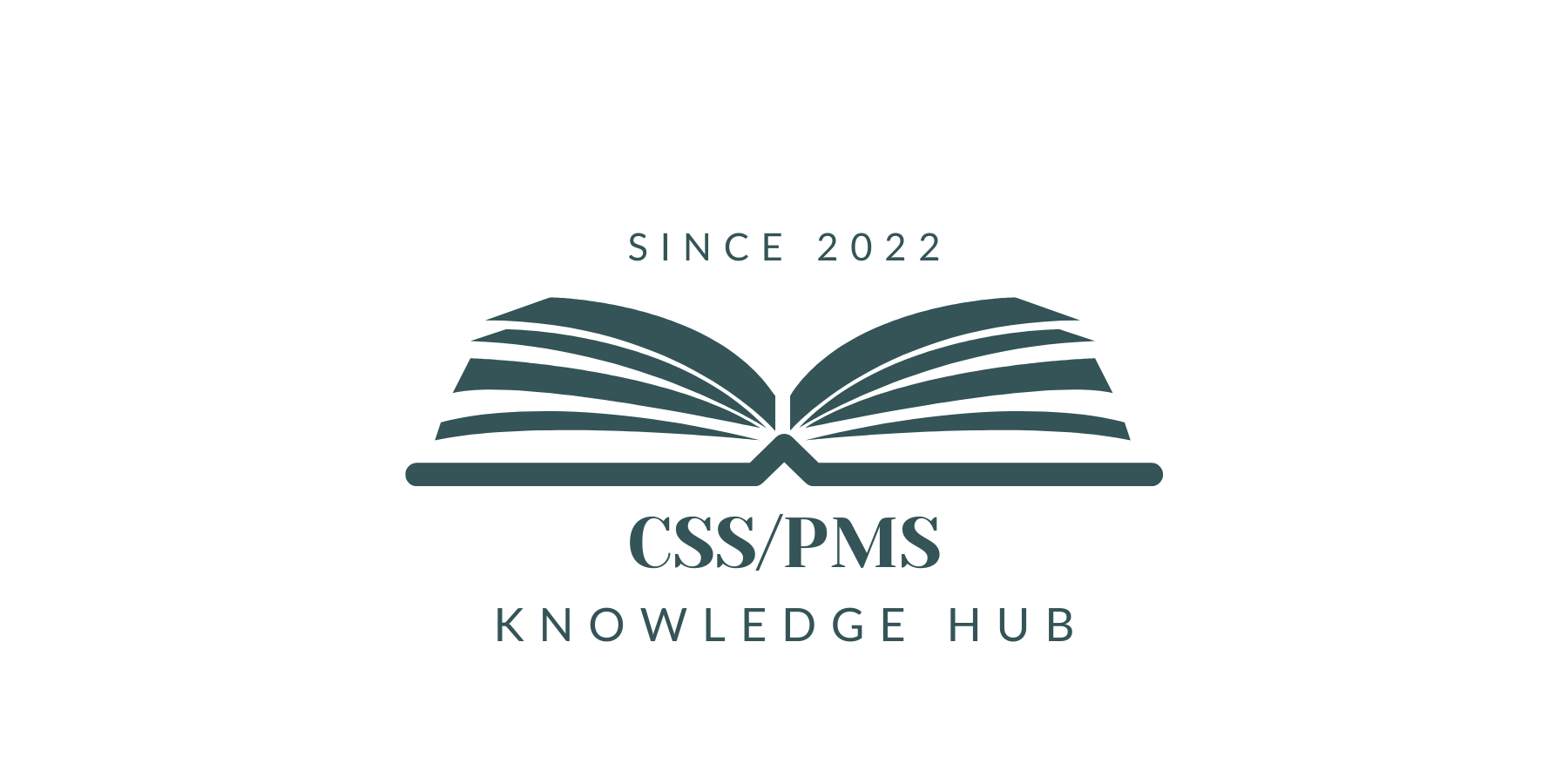Effective Study Techniques for CSS Exams Success
I. Introduction
The CSS exams in Pakistan are highly competitive and demanding, requiring extensive preparation and dedication to succeed. To excel in these exams, it is essential to develop effective study techniques that can help candidates prepare more efficiently and perform better on exam day. This article will explore some of the most effective study techniques for the success of CSS exams. By following these techniques, candidates can optimize their study time, improve their retention of information, and perform better on the exam.
II. Create a Study Plan
Creating a study plan is a critical step toward success in CSS exams. Without a plan, candidates may waste time or feel overwhelmed by the volume of material they need to cover. Here are some tips for creating an effective study plan:
- Identify your strengths and weaknesses: Start by identifying the subjects and topics that you are most comfortable with, as well as those that you find more challenging. This will help you allocate your time more effectively and focus on the areas that need the most attention.
- Set realistic goals: Break down your study plan into manageable chunks that align with your goals. For instance, you can set daily, weekly, or monthly goals, depending on your study schedule.
- Make a timetable: Create a study timetable that covers all the subjects and topics you need to cover. This will help you keep track of your progress and ensure that you cover all the material in time for the exam.
- Allow for flexibility: Be sure to include some flexibility in your study plan to account for unexpected events or interruptions. This will help you stay on track even when things do not go as planned.
By following these tips, candidates can create a study plan that is tailored to their individual needs and goals, and that can help them prepare more effectively for CSS exams.
Also Read: How to Solve MCQs in CSS Exams?
III. Time Management
Effective time management is crucial for success in CSS exams. By managing your time effectively, you can maximize your productivity and minimize distractions. Here are some tips for managing your time effectively during CSS exam preparation:
- Prioritize your tasks: Start by identifying the most important tasks and assignments, and prioritize them based on their level of importance and urgency. This will help you allocate your time more effectively and ensure that you are focusing on the most critical areas.
- Use a planner: Use a planner to keep track of your tasks and deadlines, and ensure that you are making progress toward your goals. A planner can also help you identify areas where you may be falling behind and allow you to adjust your schedule accordingly.
- Minimize distractions: Identify the things that distract you the most, such as social media, TV, or other people, and find ways to minimize them. This may include turning off your phone, working in a quiet space, or setting specific times for breaks.
- Take breaks: It’s essential to take regular breaks to prevent burnout and allow your brain to rest. Be sure to schedule breaks into your study plan and use them to recharge and refocus.
By following these tips, candidates can manage their time more effectively and ensure that they are making the most of their study time. This can help them prepare more efficiently for the CSS exams and perform better on the day of the test.

IV. Active Learning
Active learning is a method of studying that focuses on engaging with the material actively, rather than passively reading or memorizing. This approach can help candidates retain information better and apply it more effectively on the CSS exam. Here are some active learning techniques that can be helpful:
- Take notes: Take notes while you read, listen to lectures, or watch videos. This will help you remember key concepts and ideas and can serve as a useful reference when you are reviewing the material later.
- Use flashcards: Flashcards can be an effective way to memorize key facts, definitions, and formulas. Create flashcards for the most important topics and review them regularly to reinforce your memory.
- Practice problems: Practice problems are an excellent way to apply what you have learned and test your understanding of the material. Find practice problems online or in study guides and work through them regularly.
- Teach someone else: Explaining a concept to someone else is an effective way to test your understanding of the material and reinforce it in your memory. Find a study partner or family member and teach them what you have learned.
By incorporating active learning techniques into your study plan, you can improve your understanding and retention of the material, which can help you perform better on the CSS exam.
Also Read: CSS Exams: 5 Movies for IR Preparation
V. Effective Note-Taking
Effective note-taking is an essential skill for success in CSS exams. Here are some tips to help candidates take better notes:
- Use abbreviations and symbols: Use abbreviations and symbols to save time and space while taking notes. For example, use “w/” for “with” and “->” for “leads to.”
- Organize your notes: Use headings, bullet points, and numbers to organize your notes and make them easier to review. Consider using different colors or highlighting key points for emphasis.
- Listen actively: Listen actively during lectures and discussions to identify the most important information. Focus on key concepts, definitions, and examples.
- Review and revise: Review your notes regularly and revise them as necessary. Use your notes to create study guides or flashcards to reinforce your memory.
By taking effective notes, candidates can improve their understanding and retention of the material, which can help them perform better on the CSS exam.
VI. Practice Past Papers
Practicing past papers is one of the most effective ways to prepare for the CSS exam. Here are some reasons why practicing past papers is beneficial:
- Familiarity with exam format: Practicing past papers allows candidates to become familiar with the format of the CSS exam. This can help them feel more confident and less anxious on the day of the exam.
- Identify knowledge gaps: Practicing past papers can help candidates identify areas where they need to improve their knowledge. This allows them to focus their studies on these areas and improve their chances of success on the exam.
- Develop time management skills: Practicing past papers allows candidates to develop time management skills. They can learn how to pace themselves during the exam and ensure that they have enough time to answer all questions.
- Test-taking strategies: Practicing past papers allows candidates to develop test-taking strategies, such as identifying keywords and key phrases in questions, eliminating incorrect answers, and making educated guesses.
By practicing past papers, candidates can improve their performance on the CSS exam and increase their chances of success.
VII. Collaborative Learning
Collaborative learning is an effective way for CSS exam candidates to improve their understanding and retention of the material. Here are some ways that collaborative learning can be beneficial:
- Diversity of perspectives: Collaborative learning allows candidates to benefit from the diverse perspectives and experiences of their peers. This can help them gain a deeper understanding of the material and develop critical thinking skills.
- Feedback and support: Collaborative learning allows candidates to give and receive feedback from their peers. This can help them identify areas where they need to improve and receive support and encouragement.
- Active engagement: Collaborative learning encourages active engagement and participation, which can help candidates stay motivated and interested in the material.
- Enhanced problem-solving skills: Collaborative learning allows candidates to work together to solve problems and develop solutions. This can help them develop problem-solving skills that are essential for success on the CSS exam.
By engaging in collaborative learning, CSS exam candidates can improve their understanding of the material and develop the skills needed for success on the exam.
Also Read: CSS Exams: 5 Movies for Bureaucrats
VIII. Proper Rest and Nutrition
Proper rest and nutrition are essential for CSS exam success. Here are some tips to help candidates stay healthy and energized:
- Get enough sleep: Adequate sleep is essential for cognitive function and memory consolidation. CSS exam candidates should aim for at least 7-8 hours of sleep each night.
- Eat a balanced diet: A balanced diet rich in fruits, vegetables, lean protein, and whole grains can provide the nutrients needed for optimal brain function. Avoid processed foods and sugary snacks, which can lead to energy crashes and brain fog.
- Stay hydrated: Drinking enough water is essential for optimal brain function. CSS exam candidates should aim to drink at least 8-10 glasses of water per day.
- Take breaks: Taking regular breaks can help prevent burnout and improve productivity. CSS exam candidates should take short breaks every hour or so to stretch, move around, or simply rest their eyes.
By prioritizing rest and nutrition, CSS exam candidates can stay healthy and energized, which can help them perform better on the exam.
Also Read: Tips & Tricks for Remembering the Authors of Books
IX. Conclusion
In conclusion, CSS exam success requires effective study techniques and proper self-care. Candidates should create a study plan, manage their time effectively, actively engage with the material, take effective notes, practice past papers, engage in collaborative learning, and prioritize rest and nutrition. By following these tips, CSS exam candidates can maximize their chances of success and achieve their academic and career goals. Remember that success is not just about working hard, but also working smart and taking care of oneself along the way.







